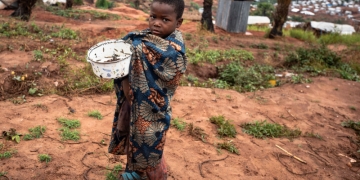
Access to reliable and affordable energy is a prerequisite for inclusive and resilient development across the globe.
In West Africa, where many regions still grapple with energy poverty, the quest for widespread access to electricity remains a challenge, and the MSGBC Oil, Gas & Power 2023 conference – set to take place in Nouakchott, Mauritania on November 21-22 – will focus on addressing this issue, with a panel discussion taking place under the theme, ‘Bridging the Divide: Collaboration to Power the Region.’
The expert-led panel discussion will explore how regional collaboration, rural electrification, and strategic planning can bolster access to electricity across the region. Ahead of the panel discussion, a presentation by Rita Madeira, Africa Program Officer at the International Energy Agency (IEA), will lay the foundation for dialogue. Madeira will provide insights into the energy access challenges in West Africa and how untapped hydrocarbon and renewable energy resources can be leveraged to kickstart regional power development.
Thereafter, the panel of experts will delve into the current energy needs of the region, how untapped resources stand to rapidly increase power generation opportunities, and where foreign investment and global partnerships play a role. Regional state-owned utilities are participating, with speakers including Cheikh Abdellahi Bedda, General Director at Mauritania’s SOMELEC; Nani Juwara, Managing Director of The Gambia’s NAWEC; and Papa Mademba, Director General of Senegal’s Senelec. Additionally, government representatives including Amadou Khan, Special Advisor: Gas-to-Power at Mauritania’s Ministry of Petroleum, Mines, and Energy and Papus Kane, Former Special Advisor to the Minister of Petroleum, Mines, and Energy of Mauritania are speaking. Alex Douglas, Managing Director & Head of Western Africa at Globeleq and the IEA’s Madeira complete the panel.
In West Africa, the rapid growth in electricity demand necessitates urgent and sustainable solutions, and gas-fired power generation has emerged as a highly strategic investment opportunity in the MSGBC region. During the discussion, experts will delve into how harnessing natural gas as an energy source can substantially enhance West Africa’s electricity production capabilities. With the arrival of first gas from the Greater Tortue Ahemyim project in 2024 and promising prospects such as BirAllah in Mauritania and Yakaar-Teranga in Senegal, gas will play a pivotal role in shaping the region’s future. Gas-to-power projects are already taking shape, with the 360 MW Sandiara plant set to commence construction in 2024. These projects present a practical solution to enhance power availability and meet the region’s growing population demands.
In addition to gas, renewable energy stands to accelerate electrification, particularly in rural and off-grid communities. The region boasts significant solar energy potential, with solar irradiance varying from around 4 kWh/kWp in southern West Africa to over 5.5 kWh/kWp in the Sahara and Sahel zone. The ultimate objective of almost every MSGBC nation is to attain universal electricity access by 2030, ensuring that even the most underserved communities have access to dependable and cost-effective power. As such, the panel discussion will focus on advancing mini-grids and off-grid solutions, promoting renewable energy in the MSGBC region.
Meanwhile, the participation of the private sector in the development of energy infrastructure in the region is essential. Integrating foreign capital with technical expertise, private players serve as a catalyst for regional power development. Progress is already underway on this front, with examples such as the Sandiara-Malicounda interconnection in Senegal. Carried out in partnership with the Senegalese government and infrastructure company LFR Energy, this investment forms a fundamental pillar of sustainable progress and development in the country.
Finally, regional cooperation will be a focal point of the discussion. In the power sector, cooperation has served as instrumental for advancing access to electricity, with initiatives such as the West African Power Pool (WAPP) streamlining cross-border trade and distribution. Connecting 15 West African countries, the WAPP has been integral for monetizing regional resources and promoting economic growth. With the introduction of new resources to the market, the WAPP is poised to play an even greater role in the region’s power future, and speakers will discuss investment opportunities, priority areas and challenges to development.
Under the patronage of the President of the Republic of Mauritania Mohamed Ould Cheikh El Ghazouani and in partnership with the Ministry of Petroleum, Energy, and Mines; the Mauritanian Oil and Mining Company; Petrosen; COS-Petrogaz; and the African Energy Chamber, the third edition of the conference will take place from November 21 to 22 in Nouakchott.








Discussion about this post